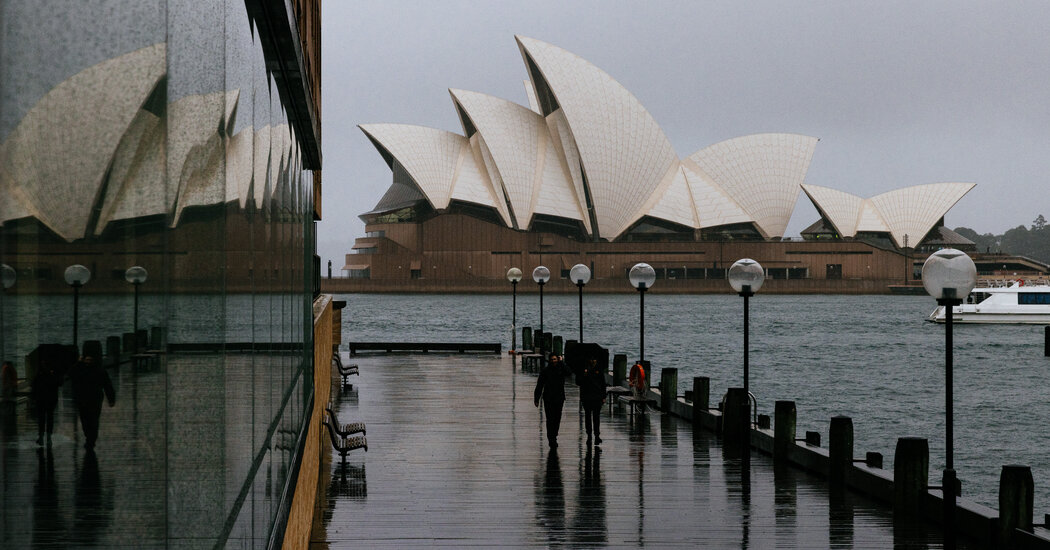Table of Contents
Dear readers,
Maybe it was too many formative basic-cable viewings of “Muriel’s Wedding,” or the fantastical names of their snack foods (Cheezels, Witchetty Grubs, Tim Tams). But as a kid I always imagined Australia to be a sort of sunny, not-quite-real mirror-world; a dusty cosmic boomerang plopped down in the South Pacific, overrun with strange animals and extravagantly diphthonged accents. (Also, Vegemite.)
Their literature, like their toast spreads, has perhaps proved too strong an extract: Aside from a few household-ish names like Peter Carey and Liane Moriarty, Australian novelists never quite seem to crack the American consciousness the way those from closer corners of the Commonwealth regularly do. (Time will tell if Alexis Wright, whom we recently profiled, will prove an exception.)
The books in this week’s newsletter, though, make bracing use of that famed predilection for pungency. They also have a particular feel for the painful unraveling of intimate relationships; a scorched catalog of long-held resentments and alliances shifted in the night. And those themes are universal, even when the signal has to traverse the salty trough of a 9,000-mile-plus culture gap. (What is this charming thing they call a “dunny,” you might pause in your reading to wonder, until Google helpfully explains that it is some sort of diminutive for toilets. And a Hot Milo? Not an unusual sex act, it turns out, just a brand of cocoa.)
The first pick here comes from a grande dame of Australian letters, although she would probably balk at the term. The second I plucked from the three-dollar shelf at a Hudson Valley bookstore one wind-bitten day in late December — or as they know it in Melbourne, peak summer.
—Leah
“Honour & Other People’s Children,” by Helen Garner
Fiction, 1980
At 81, Garner is enjoying a bit of a late-career renaissance. A steady stream of her works are currently being reissued stateside, with some fanfare and fresh introductions from contemporary authors; later this month, a new edition of her touchstone 1977 debut, “Monkey Grip,” arrives with the glowing endorsement of Lauren Groff.
“Honour & Other People’s Children” — which is really two unrelated novellas, variations on a theme — is generally less celebrated, though it springs from the same louche, ragged Me Decade setting that “Monkey Grip” established with such ruthless clarity. Here, the ramshackle group houses, loose joints and loosened mores still abide. But the sunburned sensuality and stoned countercultural melodrama has been muted or diverted, the inevitable hangover of all that unfettered freedom coming to roost.
“Honour,” about a not-quite-divorced couple and their young daughter learning to make space for the husband’s new relationship, is a marvel of small domestic details, tender and caustic and neatly devastating. The messier, more impressionistic “Other People’s Children” skitters along with less connection to its passel of rueful second-wave feminists and perpetual Lost Boys, though it does contain a perfectly lethal snapshot of collective living in its opening paragraphs: a gaggle of hippies gathered around the kitchen table with their weed and Formosa tea, “talking about massage and colonic irrigation, agreeing with each other, complaining soothingly in soft voices.”
Read if you like: Endless summers, patched denim, passive aggression
Available from: Text Classics — or if you prefer vintage, increasingly competitive corners of the internet.
“Summerland,” by Malcolm Knox
Fiction, 2000
Knox’s characters never cross pass with Garner’s — but if they did, they’d probably exchange, at most, a mutual glance of disdain. His narrator, Richard, is the least shiny of a golden foursome whose youth, beauty and careless wealth allow them to levitate somewhere over Sydney Harbor, happily encased in the champagne bubble of their bottomless self-regard.
But like so many rich, pretty people on whom fortune has smiled, they’re also patently miserable: addled players in some obscure romantic parlor game that Richard recounts from the other side of an unspeakable tragedy, its actual details obscured until the book’s final paragraphs. In the meantime, he has 250 pages or so to ferret out what went wrong between himself; his heiress wife, Pup; his feckless best friend, Hugh; and Hugh’s wife, Helen — a love rhomboid that he discovers, to his detriment, was always more truly a triangle.
If you’re sensing a frantic finger-wave from Nick Carraway, you wouldn’t be wrong. “Summerland” often willfully evokes an antipodean “Gatsby,” only with rugby clubs, cocaine and flimsier character motivations. But Knox, a longtime journalist who went on to write several better-known novels, has a canny sense of human frailty, and his riffs on class and privilege — the gilded vagaries of “our type” — ring true.
Read if you like: Beach houses, casual cruelty, white pants after Labor Day
Available from: Picador
Why don’t you …
-
Enjoy Garner’s wonderfully waspish essay on aging ungracefully, which manages to germanely quote both Marilynne Robinson and Dirty Harry?
-
Pick up the first major monograph by the Aboriginal artist Vincent Namatjira, whose witty, playfully subversive self-portraits (often featured alongside the grimacing likes of Queen Elizabeth or Donald Trump) are rendered in daubs of paint so juicy you could pulp them for Vitamin D?
-
Set Mark Twain’s onomatopoeiac poem “A Sweltering Day in Australia” to song? It’s already at least halfway there.
Thank you for being a subscriber
Plunge further into books at The New York Times or our reading recommendations.


